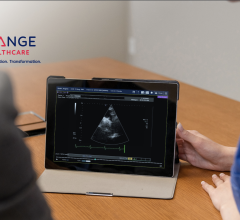In a recent LinkedIn Medical Device Group posting, it was noted that DuVal & Associates, P.A. filed a Citizen Petition and Petition for Stay of Action with the FDA, on behalf of the Minnesota Medical Device Alliance (MMDA). See: http://medgroup.biz/FDA-petition
The petition challenges the FDA's practices and interpretations for reviewing 510(k)s and asks the Commissioner to stay the implementation of “Draft Guidance: Evaluating Substantial Equivalence in Premarket Notifications [510(k)],” dated December 27, 2011. It seeks reversion to older guidance until FDA addresses:
- Its practice of “stage-gating” reviews (because it leads to an inevitable FDA request to pursue the de novo path);
- Its interpretation of “general versus specific intended use,” now applied so narrowly that FDA considers almost every new indication for a 510(k) device to be a new intended use;
- Its interpretation of clinical utility/benefit as part of the substantial equivalence (SE) criteria (because it essentially allows FDA to determine which devices practitioners should use);
- Its inappropriate use of statutes and regulatory matters extraneous to the SE decision (e.g., cGMP/Quality Systems, MDR, FD&C Act advertising and promotion, and OSHA regulations or CDC guidance);
- Its application of risk mitigation and “assurance case” principles to 510(k) clearance criteria;
- Its interpretation when a device has a new technological characteristic which raises new questions of safety and effectiveness;
- Its failure in stage-gated reviews to review performance data to determine same intended use / technological characteristics and if new safety and effectiveness questions need to be asked;
- Its practice of dictating the non-clinical and clinical performance data an applicant must generate (instead of reviewing submitted data at face value for an SE decision); and,
- Its approach to “whistleblowing,” which can lead to risk-averseness for political, not safety, reasons.
The petition seems on the mark. Medical device companies are under enormous financial pressures with difficult economies both domestically and abroad. Add to this the 2.3% medical device tax on gross revenues and a highly bureaucratic, overbearing (if you agree with this petition) FDA and you can’t help but envision difficult times ahead for our industry. Innovative small and midsize companies are struggling, and the government and the FDA aren’t helping matters by treating innovation as the problem. Many on the device side seem unable or unwilling to challenge the FDA bureaucracy. Win the battle but lose the war, perhaps? As one CEO recently shared, "Challenging [the FDA] might make me feel better but it won't resolve the problem." A real shame as, according to this petition, the FDA and some of its policies need to be challenged.
I agree with this petition that the United States may fall behind other countries in having access to state-of-the-art medical devices while they still are state-of-the-art. That ship may have already sailed, in fact. I also agree that innovation – something we have always embraced and encouraged as a great nation – is being thwarted rather than supported. Healthcare consumers and innovative device companies are suffering and will continue to do so if changes aren’t made.
Despite said doom and gloom, some innovative, well-managed companies will blast through the aforementioned roadblocks and become stronger, particularly as competition drops off. But I’m concerned that it's going to be mostly the largest companies that survive, and innovation might not always be their strongest suit. I’m also concerned that, as competition disappears, medical device prices will increase – not good for consumers or our Healthcare System.
There is a symbiotic relationship between healthcare providers, healthcare consumers, device manufacturers, our government and the FDA. Sadly, the later have too much power and our system, as this petition suggests, is out of balance and in need of correction. If you agree, beat the drums!



 December 23, 2025
December 23, 2025 









